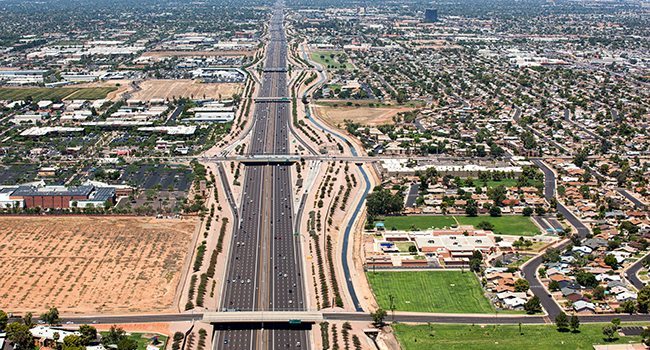East Valley Partnership, which advocates for the economic development and quality of life interests of residents in six cities and towns – Chandler, Gilbert, Mesa, Tempe, Queen Creek and Apache Junction – of PHX East Valley oppose three propositions on the Nov. 6 election ballot.
Following presentations from both sides of the issues and thoughtful consideration from its 45-member Advocacy Committee and 65-member board of directors, the organization is recommending that its members and local citizens vote no on Propositions 126, 127 and 305.
Proposition 126 would prohibit state and local governments from enacting new taxes or increasing tax rates in effect on Dec. 31, on services performed in Arizona. This could include everything from salon services, pet grooming, amusement and fitness activities to real estate transactions, banking, investment management and healthcare.
“We believe this initiative would reduce the ability of the state Legislature to manage the budget and prematurely remove sources of funding for critical state and community services while creating an administrative burden for business owners,” said Denny Barney, East Valley Partnership’s president and chief executive officer.
The organization’s board also is in opposition to Proposition 127, which would amend Arizona’s constitution and require utilities to get 50 percent of their energy from renewable sources, such as solar and wind, by 2030.
Under the current law, utilities are required to get 15 percent of their energy from renewable sources by 2025.
“In essence, this initiative would bring California’s expensive, burdensome and overreaching energy regulations to Arizona,” Barney said. “If approved, studies show that this onerous, costly proposal would double electricity for the typical Arizona family.”
East Valley Partnership also took a close look at Proposition 305, which would make Arizona public school students eligible for Empowerment Scholarship Accounts (ESAs) for use on private education, homeschooling or other non-public education.
In April 2017, Gov. Doug Ducey signed the ESA program education into law to provide state funds for parents who choose to send their children to private schools.
Public school students with special needs or who are in foster care, the military or are a sibling of a student in the program, who live on an Indian reservation or have a parent who is legally blind or deaf are eligible for ESA empowerment scholarships. The 2017 law would extend this funding to all Arizona students.
East Valley Partnership adopted a “no” position on the referendum to protect Arizona’s public education system.
“We believe that the current ESA voucher program should maintain its focus on students with special needs, in foster care and in military families,” Barney said, “while preserving public education funding to support an educated workforce and a robust economy.”




